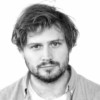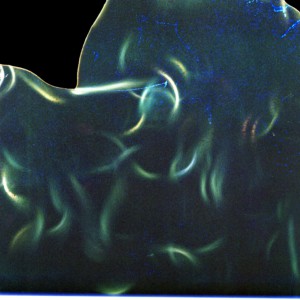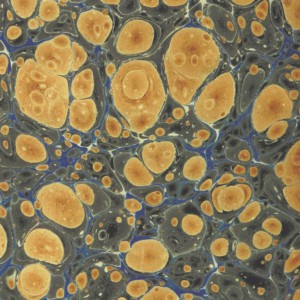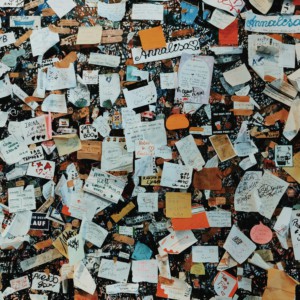Visions & the Visionary in Experimental Film & Poetry
Explore the occult and phenomenology as we wander the luminous bridges between poetry and film.
This unique course will consider how VISION and the VISIONARY might manifest across textual and visual mediums: drawing on the origins of photography and cinema in relation to science and spiritualism and how, from the ‘newest’ ancient obsessions of modernism through to the contemporary séance of filmmakers working with archival or found footage, the avant-garde has evolved to splice poetry with film in a growing conversation.
This will begin with a potted (and enthusiastically eccentric) history of film and poetry that will rest to focus on the explosion of lyrical visions provided by the American Avant-garde: from the midnight blue reveries of Joseph Cornell, through to filmmakers like Harry Smith, Storm de Hirsch, Kenneth Anger, Jack Smith, Marie Menken, and Curtis Harrington.
The two filmmakers of primary focus will be Maya Deren and Stan Brakhage. We will consider the poetic anthropology of Deren and her interests in Haitian Vodou, witchcraft, dreams, and dance. In our exploration of Brakhage, we will consider the influence of Gertrude Stein on questioning and reimagining perception, representation and the possibilities of, and in, meditation.
Of the three main poets we will be looking at, two are united through the influence of the first. Centring around the influence of H.D. (Hilda Dolittle), we will consider her visionary engagement with mythology, film, and the occult and how it later emerged in the work of Black Mountain poet Robert Duncan and the New York School poet Barbara Guest. From the modernist impulse across imagism, mythology, psychology, and the many innovations in language, through to the romantic visions that escaped postmodernism; propelled by projective verse into the oracular, esoteric, and wonderfully strange, these are poetries that find an inner or other light, a way to somehow illuminate beyond.
During each session of the course, you will be provided with a series of slides, text and links. Each of these ‘packs’ will culminate in a series of creative exercises, prompts and ideas. The driving motivation behind the course, in addition to immersing ourselves in the history and interactive, philosophical, and experiential nature(s) of poetry and film in conversation, is to spark the VISION or VISIONARY in our own work.
5 fortnightly sessions over 10 weeks, starting 3 Oct 2024. No live chats. Suitable for UK & International students.
Concessions & Accessibility
To apply for a concessionary rate, please send relevant documentation showing your eligibility for one of our concessions to [email protected]; conditions of eligibility are detailed here. If you have any questions, wish to be added to the waiting list of a sold-out course, or require any form of adjustment to access our courses, please email [email protected]. For more information visit our Online Courses page.
Image credit: @rubyfmzk
About David Spittle  View Profile
View Profile
David Spittle is a poet, filmmaker, librettist, and essayist. He has taught across Creative Writing and English Literature in HE for over ten years (Newcastle University, University of West London). Spittle has published five collections of poetry, B O X (HVTN, 2018), All Particles and Waves (Black Herald Press, 2020), Rubbles (Broken Sleep Books, 2022), Decomposing Robert (Black Herald Press, 2023), and How Eyes Rest (HVTN, forthcoming). He also runs a series of interviews with filmmakers talking-about-poetry and poets talking-about-film; the first volume, Light Glyphs (Broken Sleep Books, 2021), includes John Ashbery, Guy Maddin, Andrew Kötting, Iain Sinclair, and many others. Spittle’s films have screened at festivals internationally and been broadcast on the BBC. Alongside filmmaking, his film criticism has appeared in Sight & Sound and as part of select Blu-ray releases. Website: https://www.davidspittle.uk.
"Online courses at the Poetry School over the past ten years have been fundamental to my growth as a poet in confidence, writing ability and number of publications."
 In the Realm of the Senses: A Course on Multimedia Poetry
In the Realm of the Senses: A Course on Multimedia Poetry Transreading Interdisciplinary Poetic Writing with Prototype
Transreading Interdisciplinary Poetic Writing with Prototype Beyond the Letter: An Exploration of the Asemic Studio+
Beyond the Letter: An Exploration of the Asemic Studio+